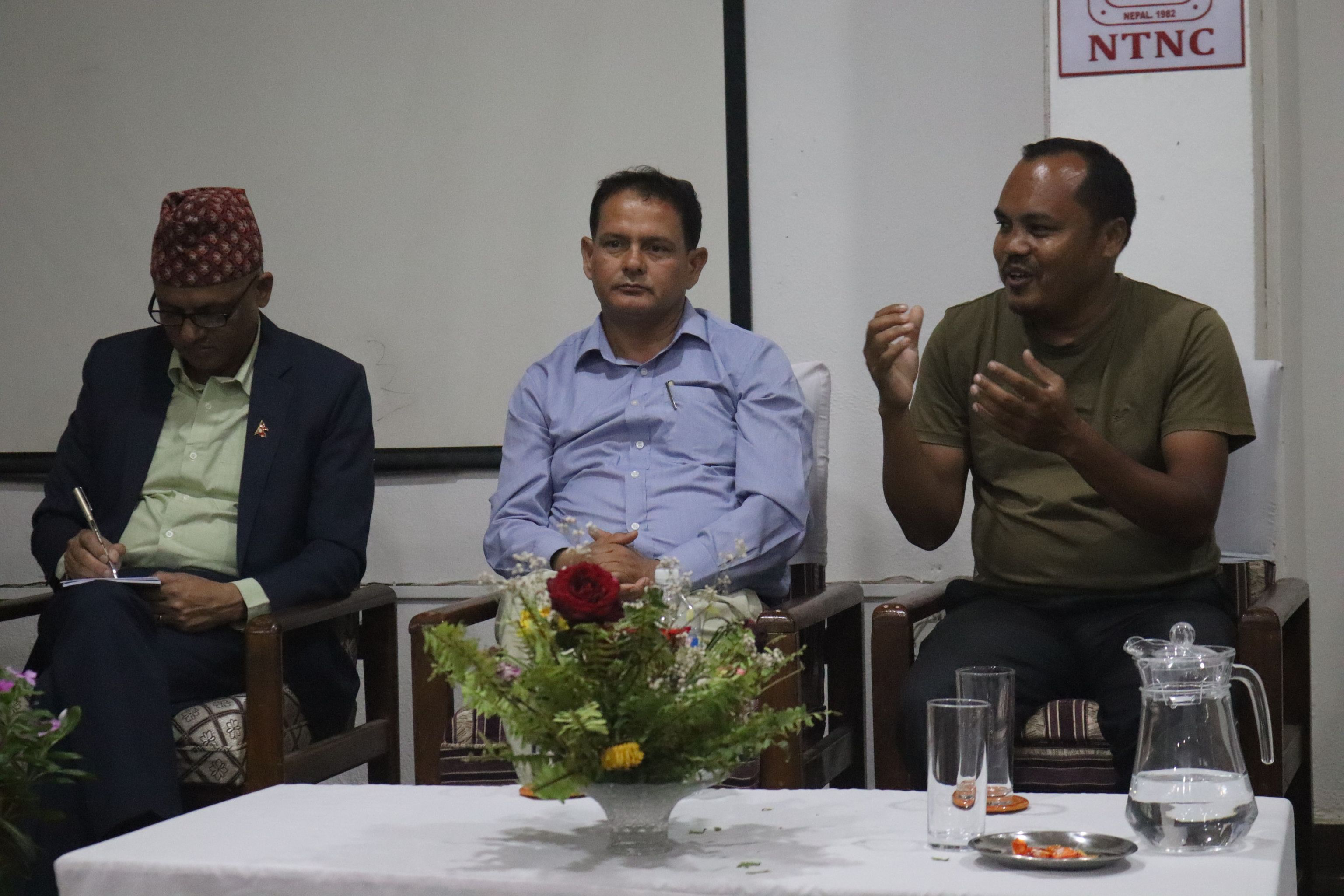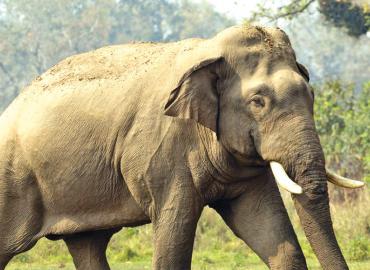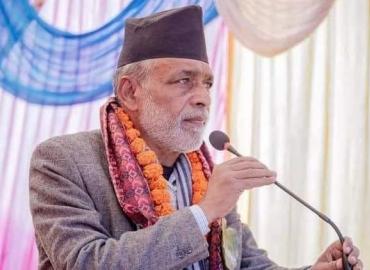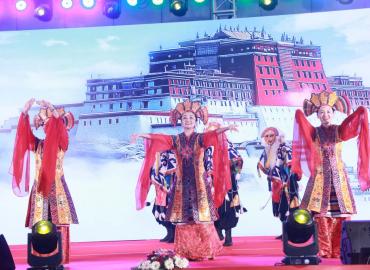Raju Jhallu Prasad / Prem Bastola
Sauraha: The leaders of the local community have alleged that Chitwan National Park, which is listed in UNESCO, is ignoring the contribution of the local community. On the fourth day of the 2nd International Conference on Asiatic Dog (Dhole) in Sauraaha, the Dhole Working Group (DWG) made this accusation by the leaders of the local community participating in the local discussion on the role of Park and the community.
Basudev Dhungana, Chairman of Intermediate Area Management Committee, who participated in the discussion, said that the time has come to improve the settlement in Park. Stating that the local Tharu, Musahar, Bote communities have an important role in getting Park listed in UNESCO, he said, "The conservation history is not only positive. A fort was imposed by prohibiting the killing of the main species by studying foreigners. However, the king could kill. At that time, only the local people were subjected to check-bars, which is still going on."
Dhungana also expressed his suspicion that the extended conservation strategy without involving the locals would cause accidents. "We have become well-known globally for increasing the number of large animals, but because of this behavior, we think that we are forgetting the importance of the local communities that have been taken out of the central area. The Tharus who tried to save the rhinoceros are being harassed by the rhinoceros, but the Tharus have not protested. They have not started protesting", he said. Dhungana insisted that 'No Casualitiees, No conflict conservation program' should be carried forward.
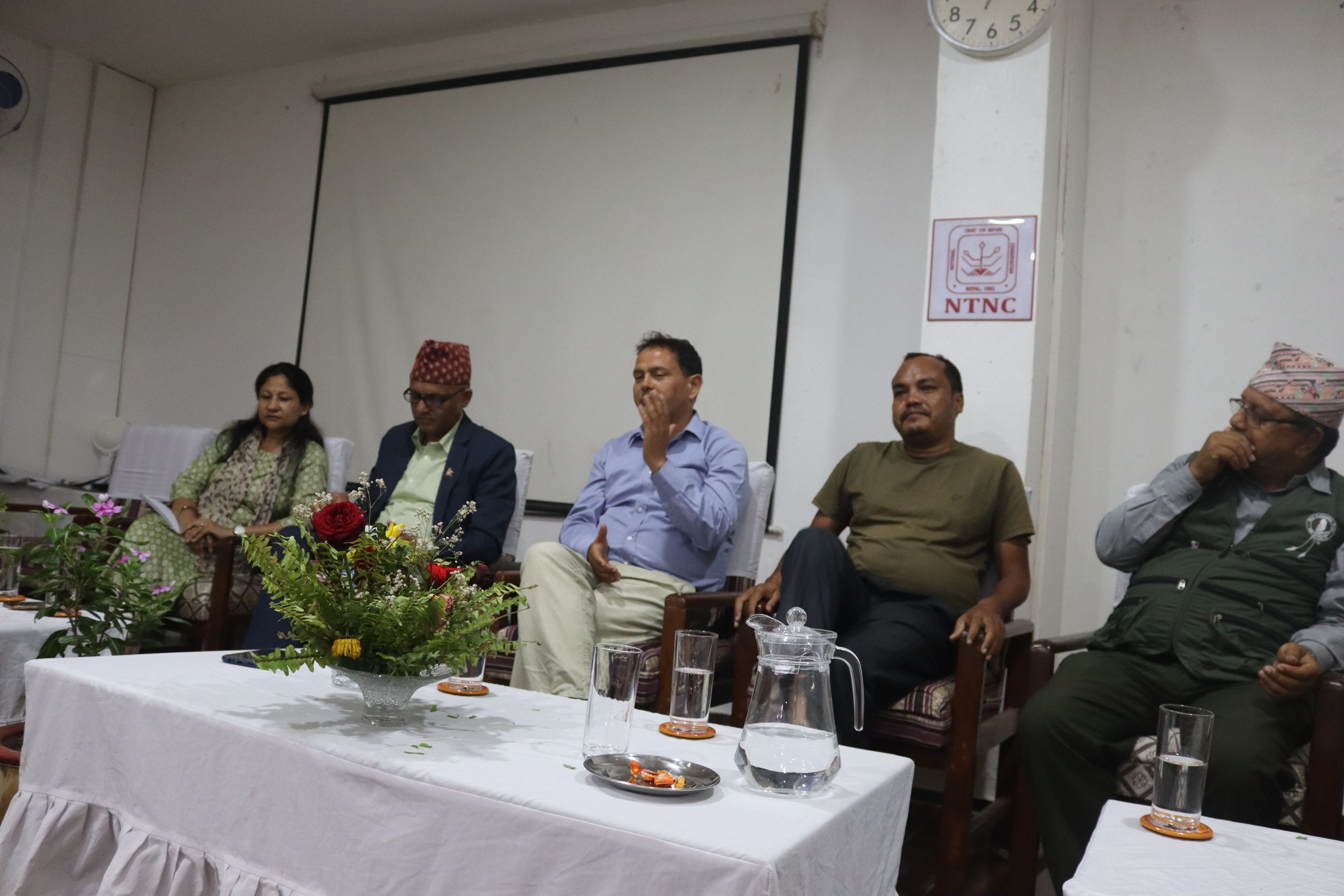
Also, President of Tharu Culture Museum Birendra Mahato gave detailed information about the condition of Tharu before Park was form and the condition of Tharu after Park was built. He also said that the Tharu, who left their ancestral land for Park, were moved far away from the direct-indirect benefits received from Nikunj. Accusations are being made", he said. “This Nikunj, built as a copycat of America's Yellowstone National Park, has forgotten locality. According to history, 30 to 35,000 Tharus were displaced from Park construction. More recently, more than 140 children of Besi Bote, mazh children’si are not able to say their father's name. Who are the fathers of more than 140 children of that community, who have been living by fishing and have not realized the need for land? I want to ask a question from here", he asked.
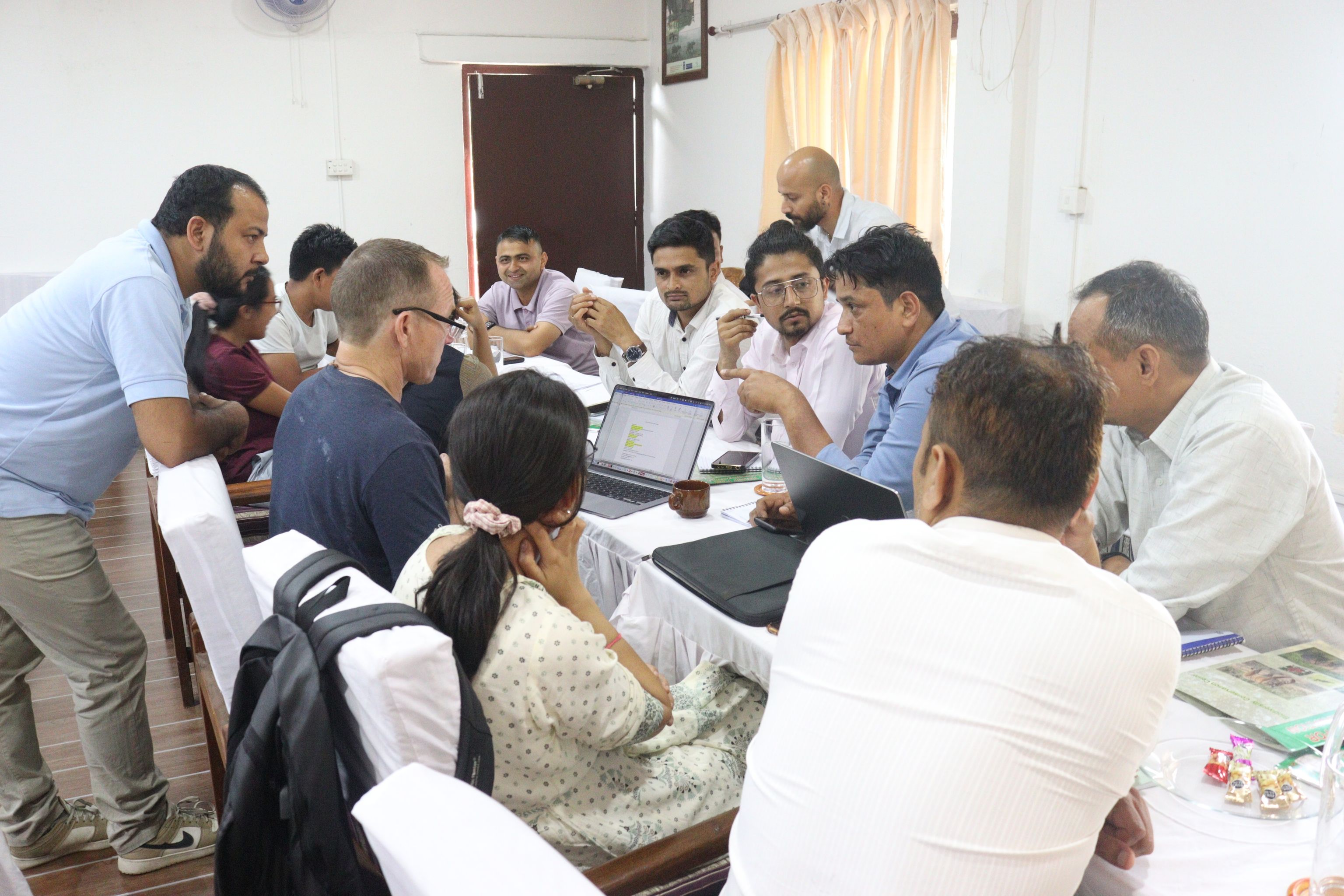
Mahato said that the Tharu community, who have been worshiping the tiger since ancient times, have traditional knowledge and skills in forest protection, boundary management and water resources protection, which are completely scientific. "Park has become problematic due to the protection of the army, its dark sides are bulging. However, if we include the Tharu community in this work, the quality of Park will be improved", he said.
Likewise, the president of the Nepal Wan Prabaidhik Sangh Nepal, Dr. Kiran Paudel said that since there is a history of Chitwan National Park being listed by UNESCO due to its wildlife, we should emphasize its conservation along with human beings after absorbing its meaning. "Strong conservation like America does not work in Nepal. In order to work like that, we must have a limited forest with a large area, where large populations can be raised and raised. However, we have 20 and 22 small protected areas, around which the dependent communities live in the forest.
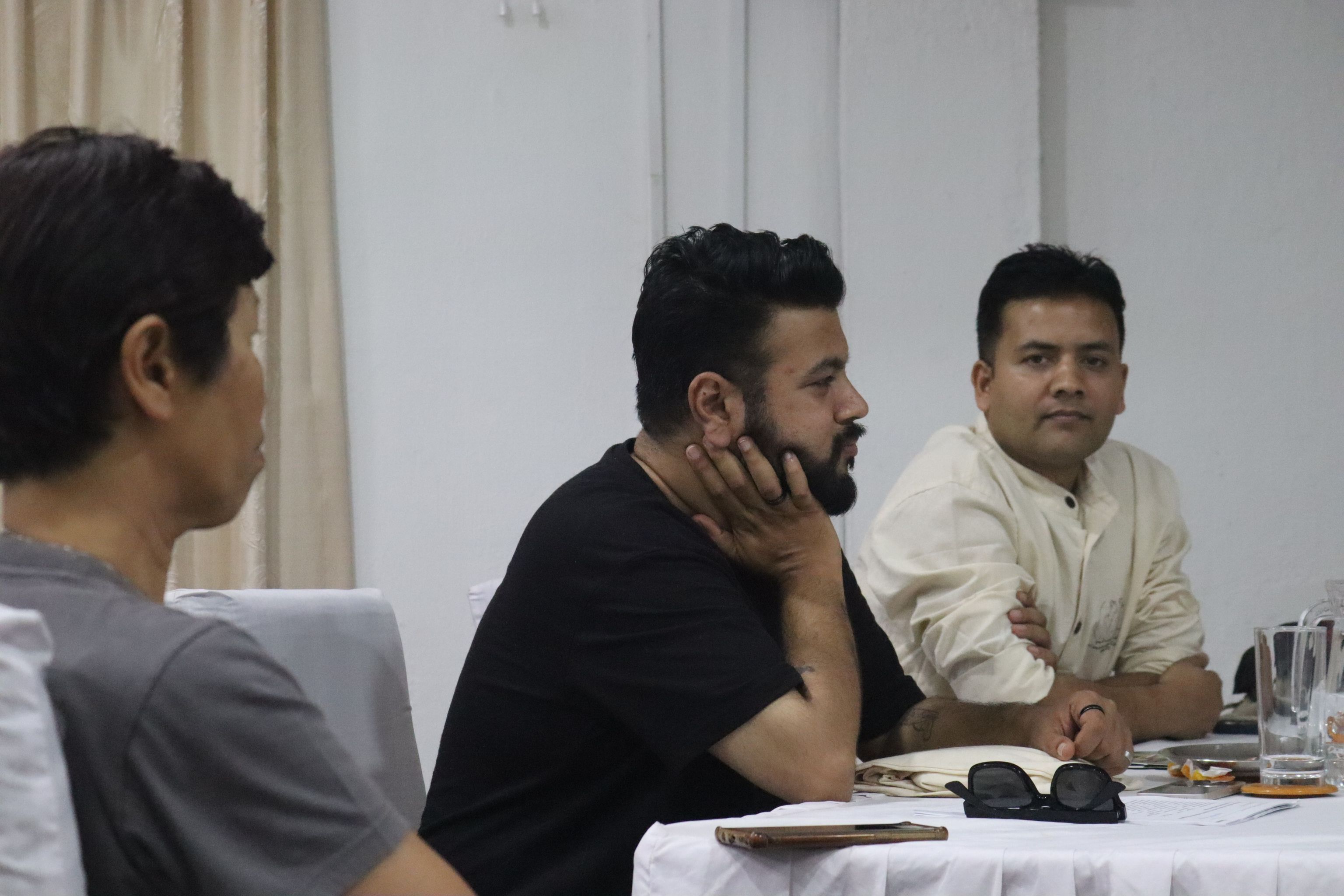
Paudel pointed out the need for democratization in the conservation policy as it is difficult for developing countries to provide alternative occupations to the forest-dependent communities. "There is a community of three types around Nikunj. First one, there are hotels, guides and businessmen who are directly benefiting from Park under the guise of today's policy. Secondly, the local people who are making a living by farming, it doesn't matter whether they is Park or not. However, they do not want to bear the damage caused by Parkj's animals to their fields. And the third is of such a category, which is completely dependent on the forest. We need to understand this scenario," he said.
Paudel said that when TX2 was announced, 7-8 people were dying in Chitwan every year, and now that number has increased to 25, so it is imperative to be aware of conflict management. "In the history of Nepal, so many people have not died in any conflict, as Chitwan and Nawalparasi has lost. However, even though 25 people died, we did not protest. Because the people here are not in favor of letting Park perish even though they have suffered," he said.
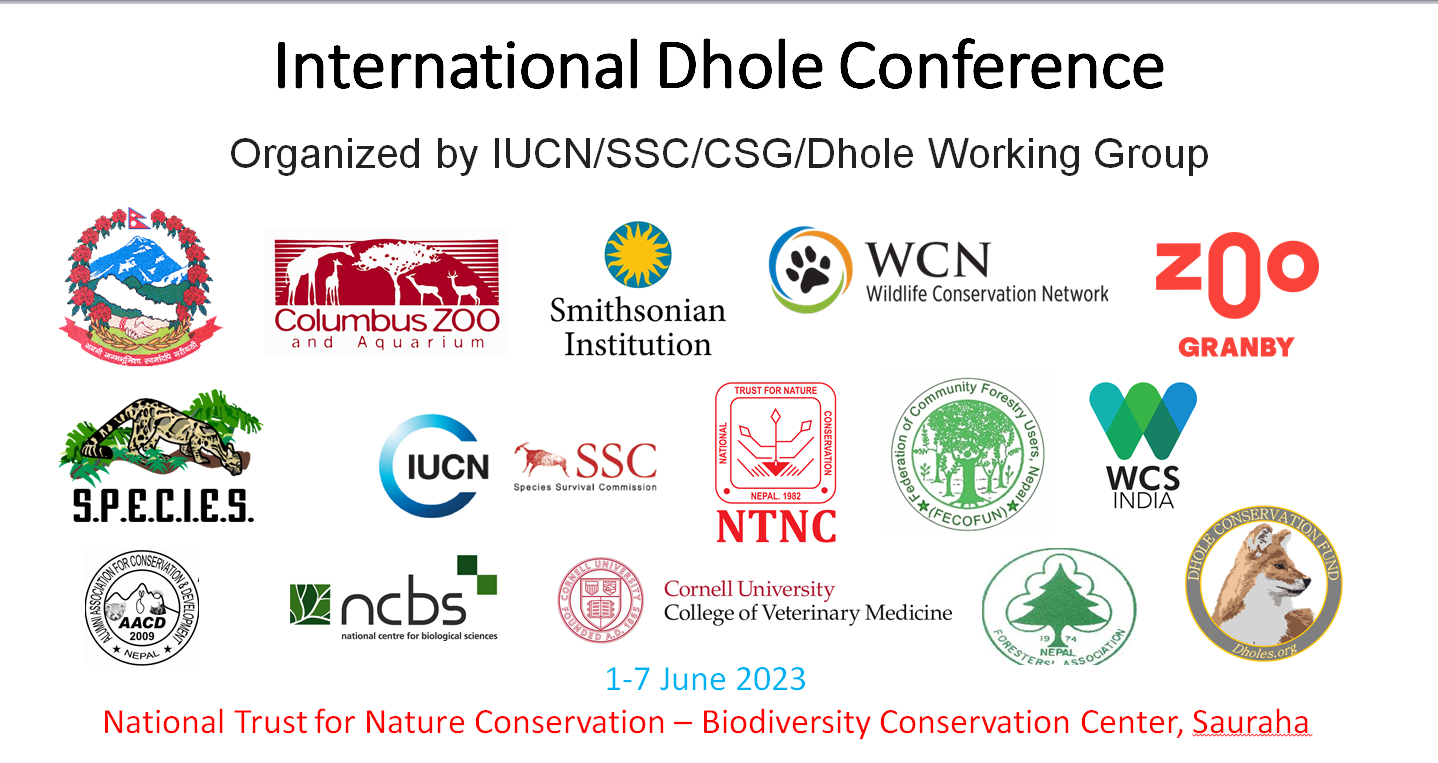
Ambika Prasad Khatiwada, coordinator of the conference and focal person of the National Nature Conservation Fund, Kathmandu, said that in the existing legal system related to the management of intermediate areas, it is necessary for the provincial and local governments and other concerned bodies to come together and the National Nature Conservation Fund is ready for this task. "The management of human-wildlife conflict and local (also with Park) conflict is the need of the day. In the name of protecting forest and wildlife, the human side cannot be neglected", he said.
Rachna Shah, President of The National Trust for Nature Conservation, Sauraha and Ram Kumar Aryal, owner and conservationist of Rhino Lodge were also present in the conference. DWG has also discussed the disease control and conflict management of forest dogs. The conference was attended by 42 wild dog conservationists, biologists, conservationists and representatives of concerned agencies from 13 countries.

